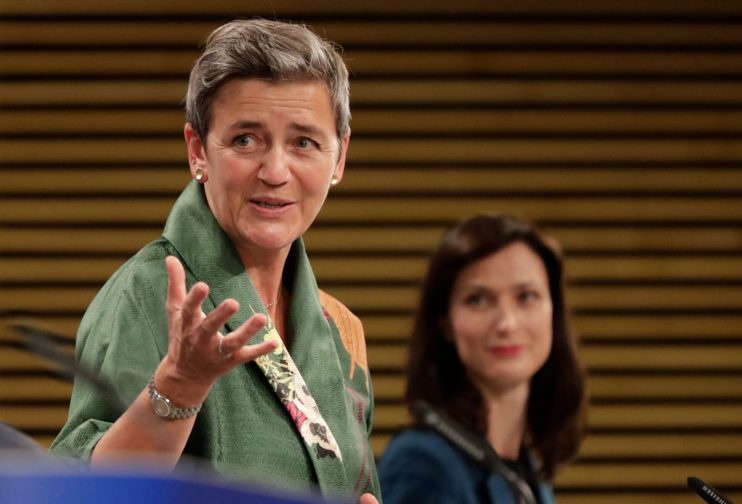EU to ban tech firms from promoting their own services in new crackdown

Tech giants will be banned from unfairly promoting their own services and will have to do more to crack down on harmful content under new rules being prepared by the EU.
Competition chief Margrethe Vestager today proposed a raft of tough new laws and promised greater powers for enforcement bodies in a bid to tackle unfair practices and curb tech giants’ power.
Under upcoming rules dubbed the Digital Markets Act, so-called online gatekeepers will be blocked from engaging in practices that stunt competition in digital markets.
This includes unfair self-preferencing, when companies such as Google use their position to promote their own services more prominently than those of their rivals.
The rules will also crack down on firms misusing their customers’ data and making it difficult for people to switch platforms.
Speaking at a European Policy Centre event today, Vestager said the Digital Markets Act would set up a “harmonised” market investigation framework in place across the single market.
“That would give us a harmonised set of rules that would allow us to investigate certain structural problems in digital markets,” she said. “And if necessary, we could take action to make these markets contestable and competitive.”
Vestager also confirmed a crackdown on how internet companies police illegal and harmful material on their platforms.
The proposed Digital Services Act will require online platforms to check sellers’ identities before they can use their services and to provide easy ways for users to complain.
Tech firms will also have to publish reports on what action they have taken to remove illegal content, as well as being transparent with users about who pays for ads on their platform and why they have been shown to a particular user.
Vestager warned that “things are going to have to change” for the world’s largest tech companies.
“They are going to have to take more responsibility, for the effects that they have on our safety and our opportunities,” she added.
The competition chief will announce the new draft rules on 2 December, but will need support from EU member states and the European Parliament to pass the legislation.
Tech giants such as Google and Facebook have come under increased scrutiny in recent months over alleged unfair practices and their failure to tackle the spread of harmful material.
But tech firms have warned new restrictions could come with a hefty cost and stunt innovation.
Brussels-based think tank ECIPE this week warned the EU’s new rules could cost £77bn in economic growth, Reuters reported.
The report, which was sponsored by Google, said changing the regulatory regime would have a “chilling” effect on the EU economy.
It comes a week after the US Department of Justice filed a lawsuit against Google over its alleged abuse of market power in the search engine market.
The case accuses the tech giants of unfairly damaging competition by promoting its own services and shutting out rivals.